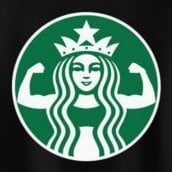-
Trending Products
-
Trending Topics
-

- 21 replies
- 447 views
-

- 9,319 replies
- 746,898 views
-

- 34 replies
- 1,673 views
-

What you should know about WLS they don't tell you
By BlondePatriotInCDA, in General Weight Loss Surgery Discussions
- 35 replies
- 1,789 views
-

- 386 replies
- 16,525 views
-

- 137 replies
- 7,760 views
-

- 35 replies
- 3,588 views
-

- 41 replies
- 1,910 views
-

- 39 replies
- 3,738 views
-

- 39 replies
- 2,333 views
-
-
Recent Status Updates
-
Happy Wednesday!· 1 reply
I hope everyone is having a lovely week so far!
It's been a bit of a struggle this last week...I'm hungry ALL the time.
-
Have a great Wednesday too! Sorry you're hungry all the time, I'm pretty much the same..and I'm sick of eating the same food all the time.
-
-
Well, tomorrow I go in for an impromptu hiatal hernia repair after ending up in the ER over the weekend because I couldn't get food down and water was moving at a trickle... I've been having these symptoms on and off for a few weeks but Sunday was the worst by far and came with chest pain and trouble breathing. The ER PA thinks it is just esophagitis and that the surgeon and radiologist are wrong. But the bariatric surgeon swears it is a hernia, possibly a sliding one based on my symptoms. So he fit me into his schedule this week to repair it! I hope he's right and this sorts it out. He's going to do a scope afterwards to be sure there is nothing wrong with the esophagus. Here's hoping it all goes well!!· 2 replies
-
-
Having gall bladder surgery in a few days and I so hope the recovery is easier than the one from the modified DS! I could use a bit of luck/pep talk for a change. I'm starting to be able to walk around without experiencing dizziness, but it would be great if the random pain in my chest and abdomen would go away!!· 0 replies
- This update has no replies.
-
























